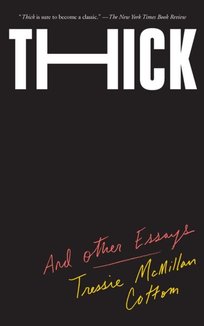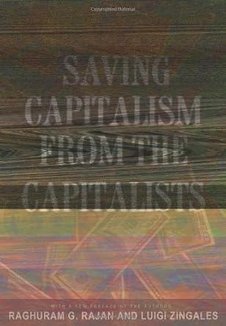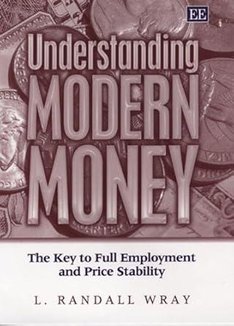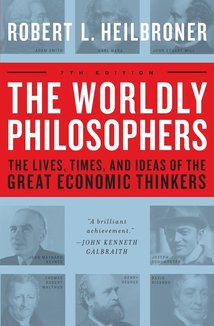Recommended Books

Thick: And Other Essays
Author:
Tressie McMillan Cottom
ISBN 13:
978-1620975879
FINALIST FOR THE 2019 NATIONAL BOOK AWARD Named a notable book of 2019 by the New York Times Book Review , Chicago Tribune , Time , and The Guardian As featured by The Daily Show , NPR , PBS , CBC , Time , VIBE , Entertainment Weekly , Well-Read Black Girl , and Chris Hayes, "incisive, witty, and provocative essays" ( Publishers Weekly ) by one of the "most bracing thinkers on race, gender, and capitalism of our time" (Rebecca Traister) “ Thick is sure to become a classic.” — The New York Times Book Review In eight highly praised treatises on beauty, media, money, and more, Tressie McMillan Cottom—award-winning professor and acclaimed author of Lower Ed —is unapologetically "thick": deemed "thick where I should have been thin, more where I should have been less," McMillan Cottom refuses to shy away from blending the personal with the political, from bringing her full self and voice to the fore of her analytical work. Thick "transforms narrative moments into analyses of whiteness, black misogyny, and status-signaling as means of survival for black women" ( Los Angeles Review of Books ) with "writing that is as deft as it is amusing" (Darnell L. Moore). This "transgressive, provocative, and brilliant" (Roxane Gay) collection cements McMillan Cottom's position as a public thinker capable of shedding new light on what the "personal essay" can do. She turns her chosen form into a showcase for her critical dexterity, investigating everything from Saturday Night Live , LinkedIn, and BBQ Becky to sexual violence, infant mortality, and Trump rallies. Collected in an indispensable volume that speaks to the everywoman and the erudite alike, these unforgettable essays never fail to be "painfully honest and gloriously affirming" and hold "a mirror to your soul and to that of America" (Dorothy Roberts).

Saving Capitalism from the Capitalists: Unleashing the Power of Financial Markets to Create Wealth and Spread Opportunity
Authors:
Raghuram G. Rajan
,
Luigi Zingales
ISBN 13:
978-0609610701
Capitalism’s biggest problem is the executive in pinstripes who extols the virtues of competitive markets with every breath while attempting to extinguish them with every action. Saving Capitalism from the Capitalists is a groundbreaking book that will radically change our understanding of the capitalist system, particularly the role of financial markets. They are the catalyst for inspiring human ingenuity and spreading prosperity. The perception of many, especially in the wake of never-ending corporate scandals, is that financial markets are parasitic institutions that feed off the blood, sweat, and tears of the rest of us. The reality is far different. •Vibrant financial markets threaten the sclerotic corporate establishment and increase corporate mobility and opportunity. They are the reason why entrepreneurship flourishes and companies like The Home Depot and Wal-Mart—mere fly specks a quarter of a century ago—have surged as they have. •They mean personal freedom and economic development for more people. Throughout history, and in most of the world today, the record is one of financial oppression. Elites restrict access to capital and severely limit not only general economic development but that of individuals as well. •Open borders help check the political and economic elites and preserve competitive markets. The greatest danger of the antiglobalization movement is that it will keep the rich rich and the poor poor. Globalization forces countries to do what is necessary to make their economies productive, not what is best for incumbent elites. Open borders limit the ability of domestic politics to close down competition and to retard financial and economic growth. •Markets are especially susceptible in economic downturns when the establishment can exploit public anger to restrict competition and access to capital. While markets must be free to practice “creative destruction,” Rajan and Zingales demonstrate the political and economic importance of a sustainable distribution of wealth and a baseline safety net. Capitalism needs a heart for its own good! There are no iron laws of economics that condemn countries like Bangladesh to perpetual poverty or the United States to perpetual prosperity. The early years of the twentieth century saw vibrant, open financial markets that were creating widespread prosperity. Then came the “Great Reversal” during the Great Depression. It can—and will—happen again, unless there is greater understanding of what markets do, who benefits, and who really wants to either limit them or shut them down. Saving Capitalism from the Capitalists breaks free of traditional ideological arguments of the right and left and points to a new way of understanding and spreading the extraordinary wealth-generating capabilities of capitalism.

Understanding Modern Money: The Key to Full Employment and Price Stability
Author:
L. Randall Wray
ISBN 13:
978-1845429416
In this innovative and very practical book, L. Randall Wray argues that full employment and price stability are not the incompatible goals that current economic theory and policy assume. Indeed, he advances a policy that would generate true, full employment while simultaneously ensuring an even greater degree of price stability than has been achieved in the 1990s. Wray's clearly written argument incorporates incisive historical analysis, modern monetary theory, and an examination of policy alternatives that rises above the doctrinal debates among monetarists, supply-siders and Keynesians over natural or non-inflationary rates of unemployment. Understanding Modern Money proclaims that a labor buffer stock program would guarantee full employment and increase labor productivity and economic growth, while reducing inflationary pressures. Wray's analysis shows that, contrary to popular belief, the dangers of a government budget deficit are largely imaginary. He outlines a program in which the government acts as employer of last resort, thereby providing employment and training to the otherwise unemployed, and stabilizing the wage scale which acts as a brake on inflation. This permits greater price stability without requiring conventional methods such as wage and price controls or countercyclical monetary policy. This ground-breaking book offers important new ways of thinking for policymakers, students, and general readers interested in economics, employment policies, and monetary theory.

The Worldly Philosophers: The Lives, Times And Ideas Of The Great Economic Thinkers, Seventh Edition
Author:
Robert L. Heilbroner
ISBN 13:
978-0684862149
The bestselling classic that examines the history of economic thought from Adam Smith to Karl Marx—“all the economic lore most general readers conceivably could want to know, served up with a flourish” ( The New York Times ). The Worldly Philosophers not only enables us to see more deeply into our history but helps us better understand our own times. In this seventh edition, Robert L. Heilbroner provides a new theme that connects thinkers as diverse as Adam Smith and Karl Marx. The theme is the common focus of their highly varied ideas—namely, the search to understand how a capitalist society works. It is a focus never more needed than in this age of confusing economic headlines. In a bold new concluding chapter entitled “The End of the Worldly Philosophy?” Heilbroner reminds us that the word “end” refers to both the purpose and limits of economics. This chapter conveys a concern that today’s increasingly “scientific” economics may overlook fundamental social and political issues that are central to economics. Thus, unlike its predecessors, this new edition provides not just an indispensable illumination of our past but a call to action for our future.